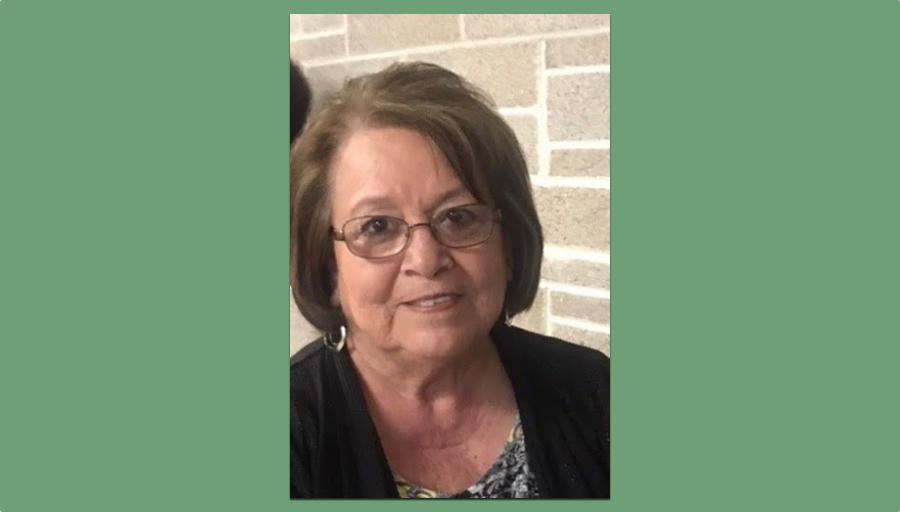Josie Jones was born into a home with 7 brothers and sisters in Jay, Oklahoma. Growing up, her large family all resided in a 2-bedroom home where the only language spoken was Cherokee. This upbringing is the foundation of what she believes today, that strong, Native families are critical to thriving communities. Josie is a committed life-long learner and always values the opportunities provided through education. In 1968, she graduated with an associates in business administration from Northeast Oklahoma A&M college.
Josie Jones serves as the director for the Substance Abuse Program for Seneca-Cayuga Nation. She started the program at SCN in 2002, when the tribal administration expanded to devote specific resources for Seneca-Cayuga members. She’s served in this position since that time and is relentless about service to our community. She first began working in this field as a receptionist for the inter-tribal council alcohol treatment center in 1980. At that time, the center served as a half-way house for Native American men. Since that time, she has continued her education in the field, taken on leadership roles and is committed to serving members and member families dealing with addictions.
Jones recounts: “Initially, I accepted the job at the treatment center because it was what was available to me. Then, I began listening to the counsellors hold their sessions in the mornings. I began to learn so much about addictions and the residence and damage they take in lives. Hearing the stories of those impacted by addiction made me take a score of my own habits as well. At the time, my husband and I were partiers. Within a year of working at the treatment center, I knew I did not want to live a life that involved substance. In 1983, both my husband and I quit both drinking and smoking and haven’t looked back since.”
When asked what she enjoys most about the work she does today, she shared: “I like that what I do helps other people. Seeing our work benefit and offer members a second chance to get their lives back is incredibly fulfilling. I’ve always said that I wanted to be someone who can help others. The success stories are evidence of our collective commitment to the well-being of all Seneca-Cayuga members. I enjoy seeing people living life to the fullest without substances.”
The Seneca-Cayuga substance abuse program is for any Native American within a 50-mile radius of the tribal complex. Individuals can call in, provide information on their particular case, and schedule an appointment where they have a clinical interview with a counsellor. Part of the intake process includes a couple health tests which exist to inform the clinic on exactly where the patient is and how critical their care must be.
Once the initial intake is complete, the counsellor will determine a number of sessions to begin the path to healing and recovery. Jones expanded further: “Each client is accountable for initiating and managing their care. It is part of the process. They manage the schedule, making and keeping all appointments. When dealing with abuse and addiction, there is no room for coercion or hand-holding to maintain commitments. The person in treatment must take responsibility and initiative for their own healing process. This is a critical first step to their success.”
A typical treatment program will include 10-16 hours of counselling sessions. Once complete, any person in healing is welcome to return for another set of sessions. Typically, this phase is known as the “after-care plan”, which serves to assist them in maintaining their sobriety.
Jones shared one of her favorite recovery stories:
We once had a patient in his late 50’s. His dad had dropped him off at our office to
enrolled in services. The patient was an alcoholic that had always been reluctant about
treatment. The counsellor who was working with him was always very encouraging in
his journey. One day he got very sick, and that experience served as his wake up call,
causing a real shift in his healing journey. After that time, the counsellor took him to an
in-patient treatment center in Ada, Oklahoma where he ended up gaining full sobriety.
To this very day, he is still sober. It’s crucial for our team that we treat each patient as
an individual, not just someone who has a problem and we ALWAYS believe in their
ability to overcome it.
Jones shared her aim is to build trust and confidentiality with each patient she works with. Never treating them differently than anyone else. When asked what advice she would share to someone who may be in a cycle of addiction, she shared: “If they want a better lifestyle, a sober lifestyle, help is available. But it is up to the individual to decide if they want the help and change will come as a result of that decision as they commit to the journey.”
If you’re struggling with an addiction of any kind, you can take your first step by calling the office directly and make an appointment to speak with their trusted counsellor: (918)-787-6700.
When asked what is one thing she’d like to be remembered by she shared: “That I was both honest and hard working. I keep confidence and am trustworthy. I believe in the golden rule and treat people how I would want to be treated. It takes a lot of patience and a lot of love to do what we do. A lack of compassion leads to hurt. I am also a grandma to 4 grandchildren, and 5 great grandchildren with another on the way. I want to be remembered as a woman whose family and faith were important to her and show up in everything I do.”
